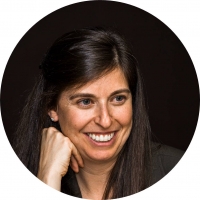Dr. Julie Lieber

I wonder: Is the role of the Jewish organization primarily to identify where people are and “give the people what they want?” Might we instead see our organizational missions as an attempt at reshaping–as opposed to accommodating – some of those very trends, by encouraging constituents to step out of their comfort zones and into new spaces? Are we as Jewish professionals charged with being responsive to existing “consumer” preferences or should we be in the business of inspiring and cultivating new market trends and course correction? These are some of the questions and tensions that we live with at Kevah, as we think about the growth of our organization and how best to serve the Jewish community.
Kevah’s mission, to empower individuals and organizations to build Jewish learning communities, indeed emerged within the context of the climate described in this chapter and is well aligned with many of the propositions discussed. At its core, Kevah seamlessly integrates Torah study and community building – neither of which are in and of themselves new concepts for the Jewish community. However, our two flagship programs, the Kevah Groups Program and Kevah Teaching Fellowship, aim to revitalize both of these core Jewish values for a 21st century audience, whom we believe are seeking meaningful conversation and supportive community.
As reflected below, Kevah aims to meet participants where they are in their lives as Jews and citizens of the 21st century and at the same time open them up to new avenues of meaning by introducing them to timeless Jewish values and wisdom in news ways. Our hope is that, bolstered by their Kevah community and the Jewish wisdom of past and present, they will “think big” about where they and the Jewish community might go next.
Wisdom/chochma: Kevah’s pedagogical model operates on the assumption that people are looking for more than literacy and knowledge. Kevah educators are trained to facilitate conversations around Jewish texts that invite participants to read their lives into the text. Kevah Groups challenge participants to think about the wisdom contained within Jewish tradition and what these texts mean for them today. Our experience tells us that all learners, whether they are new to Jewish learning or have extensive backgrounds in Torah study, are interested in being challenged and transformed by their study. They want to grapple with difficult issues and engage in meaningful conversation. Our role as educators is to share with participants the complexity, nuance and relevance of the Jewish textual tradition so that they can ultimately answer the question: Why does Torah matter to me today?
Life of sacred purpose/kedusha: Our Kevah Groups program operates on a grassroots, customized model. Recognizing the truth of Harold Schulweis’ apt observation that, “most rabbis have answers to the questions that Jews no longer ask,” Kevah encourages participants to think about the questions that they want answered. We then match them with an educator who can explore these questions with them. In our model, participants, not Kevah, choose the topic of their Kevah Group. We are therefore well positioned to take stock of shifting trends in adult Jewish learning. Over the past two years, we have witnessed a large increase in Groups that are interested in Jewish spiritual practices, in Mussar, mindfulness and meditation. Our experience indicates that people are indeed seeking ways to incorporate “sacred purpose” into their everyday lives and when Jewish organizations provide high quality engagement opportunities for such seekers, they will indeed show up – even to a synagogue.
Community/kehilla: People are seeking community. While some individuals join Kevah Groups because they are interested in meaningful conversation, at the most basic level, they are showing up because their friend has invited them to be part of a micro-community – a community that they will craft together around their own needs and interests. The Kevah host and participants choose who they want to invite, where, when and what they want to study and Kevah supports them on their journey and matches them with a Kevah trained educator. Kevah emerged out of today’s DIY ethos, which is both its greatest strength and challenge. Kevah aims to empower laypeople to create their own Jewish learning communities –and when they succeed in doing so, these communities are both inestimably more meaningful and sustainable than other Jewish communities in which they are simply anonymous consumers. At the same time, it is the exceptional Jew today who feels sufficiently Jewishly empowered to believe that she can chart the course of her own Jewish journey and bring together a Kevah Group. In many ways, this is at the heart of the work that Kevah does: empowering people to see themselves as the architects of their Jewish future.
Dr. Julie Lieber serves as the Director of Education at Kevah where she oversees the organization’s educational vision, its national network of over 50 educators and the Kevah Teaching Fellowship, which trains rabbis and Jewish educators in Kevah’s pedagogical approach to conversational Torah study for adults. She holds a PhD in European history with a focus on Jewish women, gender and sexuality, and was a professor of History and Jewish Studies in Colorado for many years before moving into her role at Kevah.


